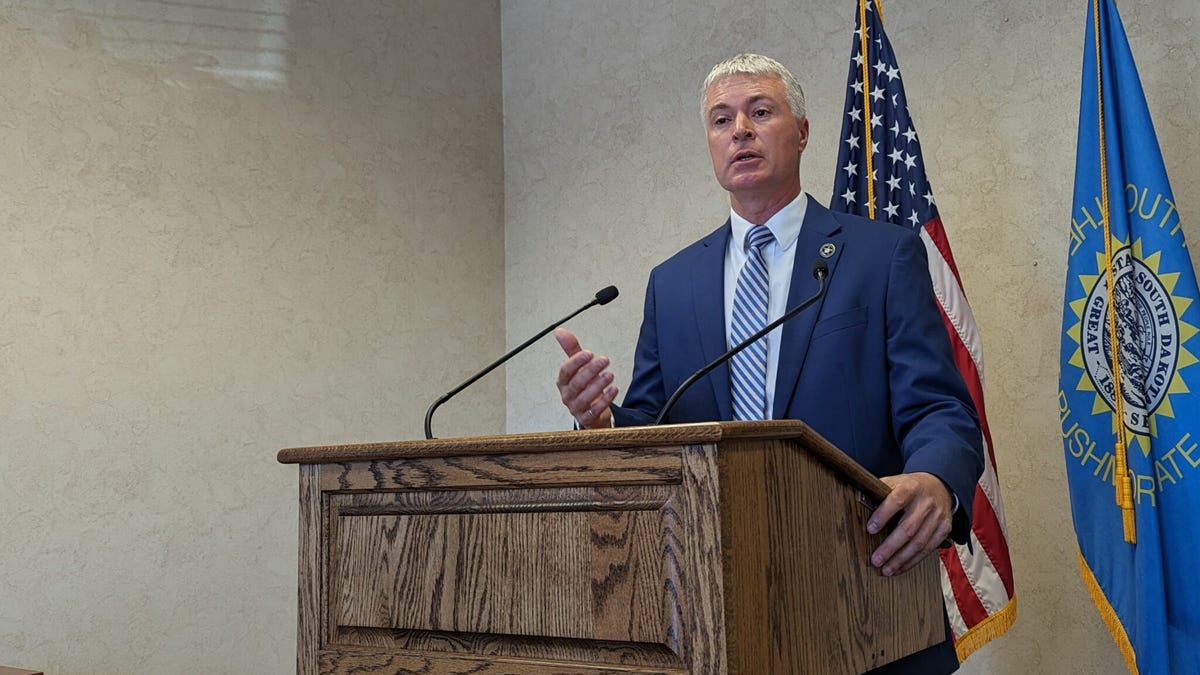World
Charges filed year after phony signatures roiled Michigan race for governor

LANSING, Mich. (AP) — Three people have been charged with forgery and other crimes in an investigation of phony petition signatures that spoiled the candidacies of five Republicans who were running for Michigan governor in 2022.
Attorney General Dana Nessel scheduled a news conference Thursday to discuss the charges, which were filed Tuesday in a Warren court in suburban Detroit.
Shawn Wilmoth, 36, Jamie Wilmoth, 36, and Willie Reed, 37, each face more than 20 charges, including election forgery and conducting a criminal enterprise, according to online court records.
Former Detroit police Chief James Craig and millionaire businessman Perry Johnson were considered to be strong candidates for the Republican nomination for governor, but they were barred from the August primary ballot.
State election officials said their petitions were rife with bogus signatures collected by paid petition circulators and, as a result, they didn’t have enough valid signatures to qualify. Three more candidates were also knocked off the ballot.
No candidate was personally accused of knowingly submitting fraudulent petitions.
The Wilmoths and Reed have not yet appeared in court. They could not immediately be reached for comment, and court records list no defense attorneys who could be asked about the charges.
Business and campaign records show Shawn Wilmoth was affiliated with First Choice Contracting LLC, a signature-collection company that was paid more than $200,000 by at least two disqualified candidates, the Detroit Free Press reported.
After the signature scandal, Tudor Dixon emerged as the Republican nominee for governor but lost the general election to Gov. Gretchen Whitmer.
Johnson lately has his eyes on a bigger prize: He’s been campaigning in Iowa for the 2024 Republican presidential nomination.

World
Manhattan's Top Federal Prosecutor Williams Joins Law Firm Paul Weiss
World
Trump issues warning to Maduro as Venezuelan leader enters third term, US expands sanctions

World
US Supreme Court critical of TikTok arguments against looming ban

Justices at the United States Supreme Court have signalled scepticism towards a challenge brought by the video-sharing platform TikTok, as it seeks to overturn a law that would force the app’s sale or ban it by January 19.
Friday’s hearing is the latest in a legal saga that has pitted the US government against ByteDance, TikTok’s parent company, in a battle over free speech and national security concerns.
The law in question was signed in April, declaring that ByteDance would face a deadline to sell its US shares or face a ban.
The bill had strong bipartisan support, with lawmakers citing fears that the Chinese-based ByteDance could collect user data and deliver it to the Chinese government. Outgoing US President Joe Biden ultimately signed it into law.
But ByteDance and TikTok users have challenged the law’s constitutionality, arguing that banning the app would limit their free speech rights.
During Friday’s oral arguments, the Supreme Court seemed swayed by the government’s position that the app enables China’s government to spy on Americans and carry out covert influence operations.
Conservative Justice Samuel Alito also floated the possibility of issuing what is called an administrative stay that would put the law on hold temporarily while the court decides how to proceed.
The Supreme Court’s consideration of the case comes at a time of continued trade tensions between the US and China, the world’s two biggest economies.
President-elect Donald Trump, who is due to begin his second term a day after the ban kicks in, had promised to “save” the platform during his presidential campaign.
That marks a reversal from his first term in office, when he unsuccessfully tried to ban TikTok.
In December, Trump called on the Supreme Court to put the law’s implementation on hold to give his administration “the opportunity to pursue a political resolution of the questions at issue in the case”.
Noel Francisco, a lawyer for TikTok and ByteDance, emphasised to the court that the law risked shuttering one of the most popular platforms in the US.
“This act should not stand,” Francisco said. He dismissed the fear “that Americans, even if fully informed, could be persuaded by Chinese misinformation” as a “decision that the First Amendment leaves to the people”.
Francisco asked the justices to, at minimum, put a temporary hold on the law, “which will allow you to carefully consider this momentous issue and, for the reasons explained by the president-elect, potentially moot the case”.
‘Weaponise TikTok’ to harm US
TikTok has about 170 million American users, about half the US population.
Solicitor General Elizabeth Prelogar, arguing for the Biden administration, said that Chinese control of TikTok poses a grave threat to US national security.
The immense amount of data the app could collect on users and their contacts could give China a powerful tool for harassment, recruitment and espionage, she explained.
China could then “could weaponise TikTok at any time to harm the United States”.
Prelogar added that the First Amendment does not bar Congress from taking steps to protect Americans and their data.
Several justices seemed receptive to those arguments during Friday’s hearing. Conservative Chief Justice John Roberts pressed TikTok’s lawyers on the company’s Chinese ownership.
“Are we supposed to ignore the fact that the ultimate parent is, in fact, subject to doing intelligence work for the Chinese government?” Roberts asked.
“It seems to me that you’re ignoring the major concern here of Congress — which was Chinese manipulation of the content and acquisition and harvesting of the content.”
“Congress doesn’t care about what’s on TikTok,” Roberts added, appearing to brush aside free speech arguments.
Left-leaning Justice Elena Kagan also suggested that April’s TikTok law “is only targeted at this foreign corporation, which doesn’t have First Amendment rights”.
TikTok, ByteDance and app users had appealed a lower court’s ruling that upheld the law and rejected their argument that it violates the US Constitution’s free speech protections under the First Amendment.
-

 Business1 week ago
Business1 week agoThese are the top 7 issues facing the struggling restaurant industry in 2025
-

 Culture1 week ago
Culture1 week agoThe 25 worst losses in college football history, including Baylor’s 2024 entry at Colorado
-

 Sports1 week ago
Sports1 week agoThe top out-of-contract players available as free transfers: Kimmich, De Bruyne, Van Dijk…
-

 Politics1 week ago
Politics1 week agoNew Orleans attacker had 'remote detonator' for explosives in French Quarter, Biden says
-

 Politics1 week ago
Politics1 week agoCarter's judicial picks reshaped the federal bench across the country
-

 Politics6 days ago
Politics6 days agoWho Are the Recipients of the Presidential Medal of Freedom?
-

 Health5 days ago
Health5 days agoOzempic ‘microdosing’ is the new weight-loss trend: Should you try it?
-

 World1 week ago
World1 week agoIvory Coast says French troops to leave country after decades




















